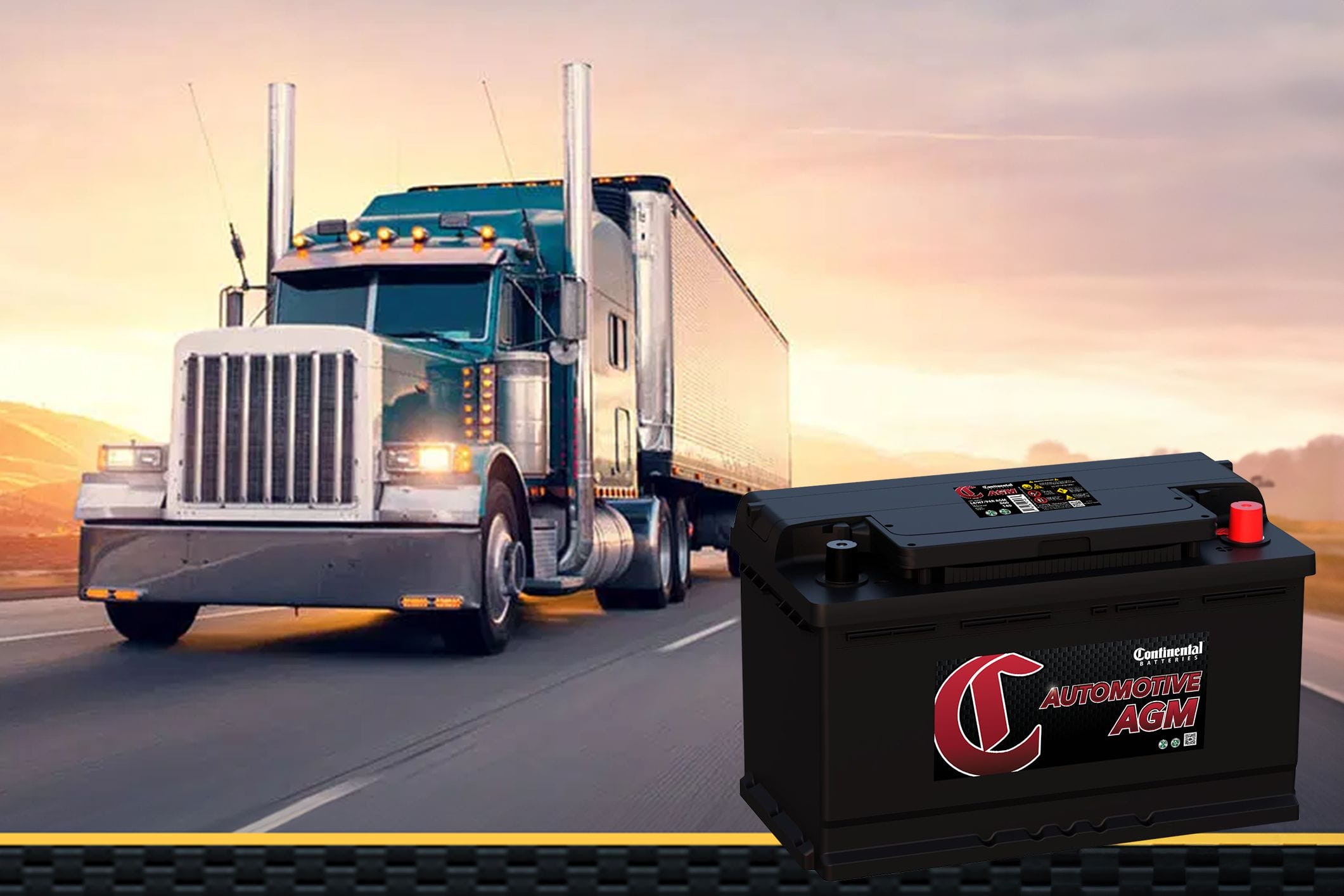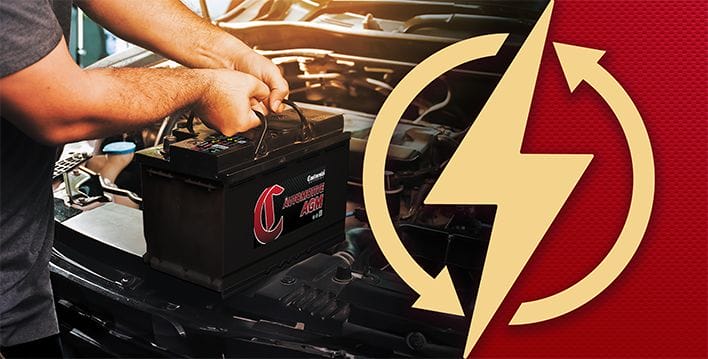
You rely on your semi-truck to do your job safely and comfortably. The battery that powers your rig needs to be able to withstand the daily rigors and long hauls, extreme weather, unpredictable road conditions and the power demands of in-cabin electronics.
That’s a lot to ask of a battery. While commercial truck batteries are built specifically to meet these demands, proper care and maintenance of your battery ensures a reliable power source and reduces downtime and repair costs. In short, regular battery care keeps your operations running smoothly and extends the life of your truck, allowing you to focus on getting the job done.
In this blog post, we’ll take a look at six common semi-truck battery problems, how to spot when something is wrong, and what to do about it.
What Is a Semi-Truck Battery?
Semi-truck batteries, or commercial truck batteries, are designed to meet the challenges of long-haul trucking. Commercial truck batteries need to be reliable, vibration-resistant and able to withstand a variety of climate conditions. While similar in chemistry to automotive batteries, semi-truck batteries have some key differences.
- Size and weight. Commercial truck batteries are larger and heavier than personal car batteries; this is to accommodate the higher power demands. A typical truck battery can weigh 70-100 lbs compared to 30-60 lbs for a car battery.
- Battery makeup. Commercial truck batteries have thicker lead plates that can supply more power. In contrast, the lead plates in car batteries are thinner and designed for short bursts of energy.
- Number of batteries. Both cars and commercial trucks run on 12-volt batteries, but trucks can run up to four batteries simultaneously. Parallel-joined batteries enhance safety and protect the vehicle’s electrical systems.
- Durability. Semi-truck batteries are built with sturdy cases and vibration resistance to withstand long hauls and unpredictable road conditions.
6 Common Semi-Truck Battery Issues
There are two main types of problems that can affect semi-truck batteries: issues that originate with the battery itself, and external issues stemming from truck components that can impact the battery’s performance.
Battery Issues
1. Battery age. Semi-truck batteries typically last between three to five years. If the battery is reaching the end of its lifespan and you notice signs that it’s failing, it may be time for a replacement. Note: If one battery begins to fail, it's wise to replace all of them because a failing battery can affect the performance of the others.
2. Damage to the battery. If you pop the hood and spot green or white powder around the battery terminals or connection points, that’s a sign of corrosion. It’s important to keep your battery clean, as corrosion can reduce battery efficiency and lead to failure. If you notice external damage to the battery box, like cracks or bulges, your battery will likely need to be replaced.
3. Improper cable connection. If your battery connections are loose, corroded or improperly fastened, your battery won’t function properly. Make sure to check your connection points frequently to ensure everything is clean and well-fitted.
External Issues
1. Faulty alternator. One of the most common causes of battery failure is a malfunctioning alternator. Just like in a personal car, the alternator is responsible for recharging the semi-truck battery as you drive. If the alternator is not working properly, the battery will fail to recharge and eventually die.
2. Parasitic draw. Today’s trucks have more energy-demanding accessories than ever. In addition to GPS, seat warmers and Bluetooth connections, some sleeper cabs come equipped with additional lighting and even cooking equipment. All of these elements put more strain on the battery and can reduce its lifespan.
3. Excessive vibration. Over-the-road travel means unpredictable road conditions. While you may not be able to avoid vibration, you can ensure your battery is strapped down and secured to minimize any jostling, which could damage the battery.
How to Spot a Failing Semi-Truck Battery
If your semi-truck battery is failing, it may not always be as clear as an engine that won’t start. If you notice any of the following signs, have your battery tested and inspected.
- Starting issues. The engine is hard to start, or the battery needs frequent recharging or jump-starting.
- Not holding a charge. You find yourself charging the battery frequently, and it’s not able to hold a charge.
- Fluid leakage, swelling or rotten smell. If you see bulging or swelling, spot fluid leaking from the battery, or catch a whiff of rotten eggs, you have an unsafe battery. Don’t continue to drive with it, and have your battery replaced immediately.
- Dimming lights. Headlights or dashboard lights are dimmer than normal, or the radio settings keep resetting.
The Key to a Healthy Battery: Maintenance
Regular battery maintenance is an important part of extending the lifespan of your battery and ensuring safe and efficient drives.

Start With the Best Semi-Truck Battery
Better batteries have fewer problems. Start with a high-quality battery designed for commercial trucking applications, practice regular maintenance and make sure to conduct regular inspections to catch issues early. A proactive approach can extend the life of your batteries and improve the overall reliability of your fleet.






